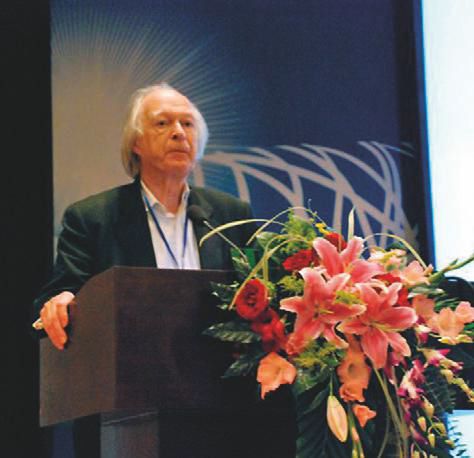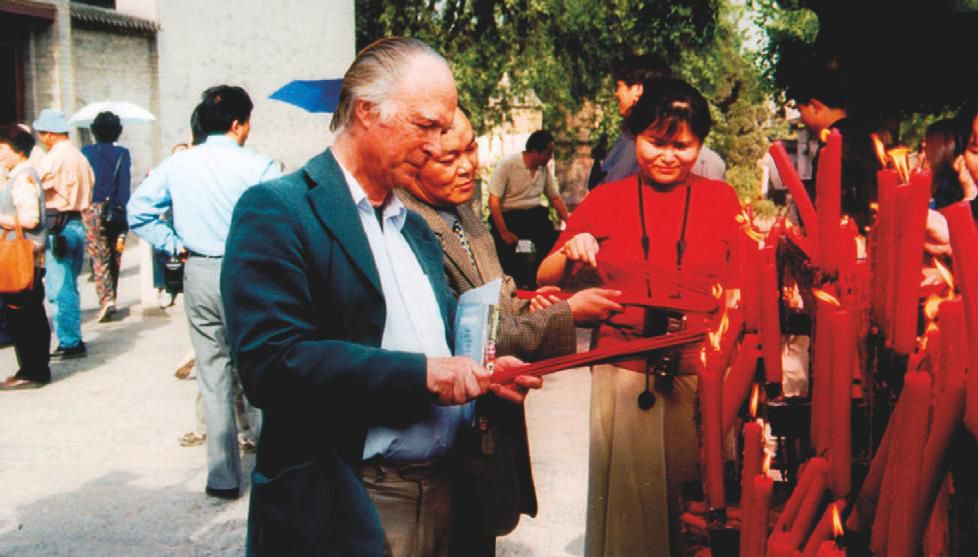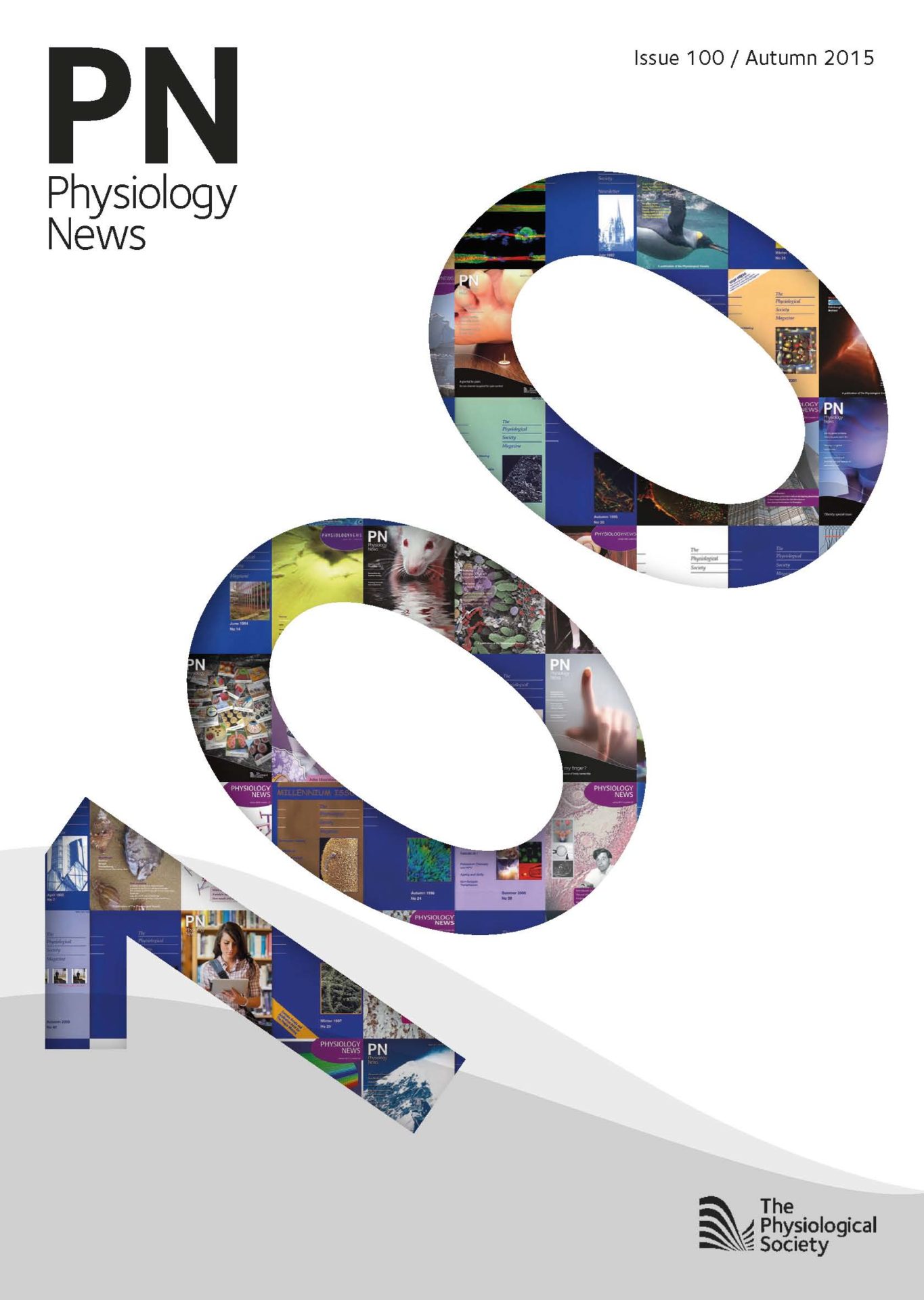
Physiology News Magazine
生理学: Studying the logic of life in China
An oriental view on what physiology is about
Features
生理学: Studying the logic of life in China
An oriental view on what physiology is about
Features
Denis Noble
Department of Physiology, Anatomy & Genetics, University of Oxford, UK
https://doi.org/10.36866/PN.100.18
Readers of Physiology News will surely not require reminding of the immense size, population and growing economic power of China. No economy in the world can ignore its impact now that it challenges even the economic power of the United States. Figures released by the Organisation for Economic Co-operation and Development show that China’s investment in science and technology as a percentage of GDP (2.2%) has now overtaken that of the European Union (1.97%). Funding has therefore grown even more rapidly than the GDP.

The results are evident to us all in space exploration (and its physiology), high speed trains, supercomputing (also relevant to physiology), world class airports, convention centres – these are the outward signs. They represent the tip of an iceberg, the base of which is the most extraordinary success in bringing hundreds of millions out of rank poverty.
What of the inward signs, fundamental research, and physiology in particular?
As an honorary member of the Chinese Association of Physiological Sciences (CAPS) I visit China fairly often. As President of IUPS I have also interacted extensively on CAPS’ plans for the IUPS World Congress in 2021. Even six years ahead that is a date to keep in mind. To judge from what I have experienced at their Annual Congresses it will be an intellectual feast as well as a feast in the more traditional sense. We all need to be more aware of the growth of physiology in China.
The reason is not just that our science is alive and flourishing there. It is also that the concept of what physiology means is subtly different. The centrality of our discipline in understanding life is written like a stone tablet in the Chinese characters used in their word for physiology. In sequence they are 生理学 : Life-Logic-Study. If your discipline is called the study of the logic of life how can you ever forget its central role?
Of course you can dig into the Greek origins of our word, physiology, and discover much the same meaning: It is indeed the study (logia) of nature (physis), but in English it doesn’t stare you in the face in quite the same way as in Chinese. As a school student I had little idea of what physiology was about until I became a medical student at UCL. If I had learnt that it was the logic of living systems I would at least have realized its central importance. I remarked on this fact in a speech to a CAPS Congress recently and was greeted with enthusiastic applause.
What also struck me about the large audience filling the Congress hall was that over 80% of them were young. Only the few front rows were occupied by the older generation. Many in my generation would have suffered the privations of the 1966-76 Cultural Revolution, when most professors and young academics were sent to work in the fields. Universities were closed and most did not reopen until 1972. Those few that survived have been responsible for reaching out to the young in a remarkable revival.

It is as though, whatever catastrophes hit Chinese culture, it has a long tradition to which it can always relate. This is true of physiology as in other areas. The earliest medical texts go back well over 2000 years. Moreover the prescriptions in them are still used today. They are now being subjected to increasingly rigorous scientific and clinical investigation. Those who are inclined to dismiss this tradition as a collection of old wives tales should remember that a large fraction of the western pharmacopaeia owes its origin to natural products. As we search for medications that can address the complex medical problems of an aging population we may well find inspiration in the natural products from the East. Physiology is well-placed to do this since we are in the business of unravelling complexity, be it at the level of molecules, cells, tissues, organs or the whole body. The twenty-first century is already witnessing the return of physiology to centre stage, to evoke a theme of the 2013 world congress in the UK.
People sometimes ask me whether highly innovative work is being done in China. It is impossible in this short overview to answer that question fully. I will just highlight two examples. The first was a presentation to our 2013 Congress by Yonghua Sun at the Institute of Hydrobiology in Wuhan showing a remarkable result on cross-species cloning: the outcome is not uniquely defined by the genome. You can see the details in the subsequent article in The Journal of Physiology. The second is a fascinating development of a new treatment for blood cancer combining components from both western and traditional Chinese medicine developed by Zhu Chen at the Shanghai Institute of Haematology. You can view the extraordinary achievements of Zhu Chen on Wikipedia.
We also need to take note of Chinese physiology for another reason. We publish some of the best journals of physiology in the world. Every time I visit China I am asked by young scientists how they can achieve publication in top journals. My answer to them has always been a three-stage process: first get criticism from colleagues and revise carefully to let your article mature, then get the English checked, then just submit your papers. If your work is good and interesting you stand just as much chance as anyone else of getting published. Remember too that
The Journal of Physiology is the oldest physiology journal in the world and has good impact. Many Nobel Prize winners have published in it. The journals of The Physiological Society have been international from their very beginnings.
References
Sun YH, Zhu ZY (2014). Cross-species cloning: influence of cytoplasmic factors on development. The Journal of Physiology, 592: 2375–2379. DOI: 10.1113/jphysiol.2014.272138
